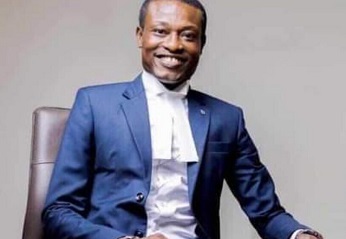The Special Prosecutor nominee, Kissi Agyebeng says there is no way he can stop corruption in the country.Â
Appearing before the Appointments Committee of Parliament on Thursday, July 22, Kissi Agyebeng said it will even be very difficult for God to say he can stop corruption.
Kissi Agyebeng explained that despite not being able to stop corruption he will make it very costly to engage in.
"My strategy is that Honourable Chair, I’m not naïve to assume that I’m coming to stop corruption. There is no way I can stop corruption. God himself will not even acclaim to that. But I’m going to make corruption very costly; very, very costly to engage in, in terms of conflict of interest," he said.
Mr Agyebeng who was answering a question from the Tamale South Member of Parliament, Haruna Iddrisu, who sought to find out the strategies of Mr Agyebeng on how he will deal with corruption, particularly the conflict of interest, said corruption is something that God himself cannot claim to stop.
However, for him, the best antidote to deal with the practice was to make it a risky venture for people who engage in the act.
According toKissi Agyebeng, when given the nod, he will institute a new policy called “Pressure for Progressâ€, under which“there will be a systemic review of all public agencies; public sector institutions and the development of integrity plan.â€
Mr Agyebeng explained that with the Pressure for Progress policy, the SP office should be able to establish its own corruption perception index whereby state agencies can be ranked based on certain corruption indicators.
“Why can’t we have our own corruption perception index, for instance? why can’t I rank public sector agencies against each other? And at the end of the year, publicise the results as to which institution is performing well and which institution is not performing well. In that point, if a head of an institution… and persistently your institution is drawing the short straw in terms of perception of corruption from the point of view of experts, from the point of view from the business people, you will sit up.â€





